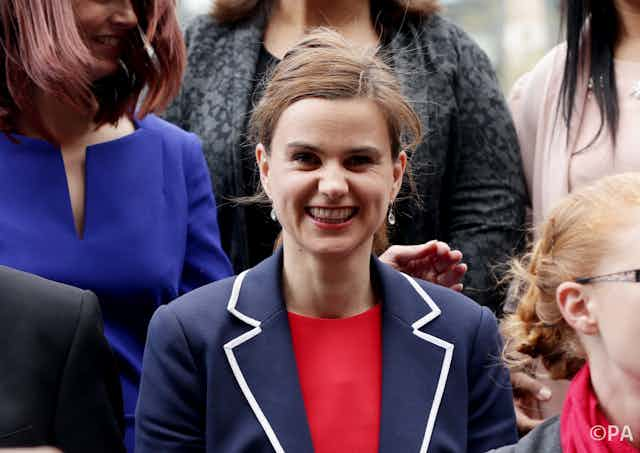Jo Cox, who was elected as MP for Batley and Spen in May 2015, was an exceptional politician who energised and enriched politics in her constituency and at Westminster.
In many ways she was a throwback to a period when MPs were regularly drawn from their local constituency. But in an age when professional politicians follow a predictable career trajectory which results in them often being parachuted into communities with which they have few – if any – ties, Jo broke the mould. She went away to study at Cambridge but came “home” to start her political career.
And although public denigration of politicians is widespread, she offered an antidote to such cynicism through her dedication and service to the community she died serving.
Jo made a strong impression on me during her tragically short time as MP for Batley and Spen. We shared a passion for the development of regional devolution in England. She was an active supporter of the Hannah Mitchell Foundation, a vanguard movement for democratic government for the north of England.
It was telling that, during her maiden speech to the House of Commons, she argued:
It is time to give city and county regions the powers and resources they need to promote growth, and I will happily work with all of those who are genuinely committed to building an economic powerhouse in the north.
She was, however, aware of the contradictions of the Conservative government’s approach to regional devolution. In that same speech, she went on to remark:
Yorkshire folk are not fools: talk about devolving power to cities and regions, while simultaneously stripping them of the resources to deliver and subjecting northern councils such as Kirklees to the harshest of cuts, is not compatible with a worthy commitment to building a northern powerhouse to drive growth and prosperity.
My own links with Jo were a result of her proactive approach to engaging with the academic community across West Yorkshire. Many MPs can appear wary of engaging with academics. We are often seen as overly-critical or idealistic.
However, shortly after she gave her maiden speech, Jo invited me and my research colleague Arianna Giovannini to meet to discuss regional devolution in England at her constituency office in Batley.
Jo proved to be warm and personable, and very keen to listen to our research on the challenges and complexities of regional devolution. She was prepared to rise above party politics to offer an honest critique of the shortcomings of Labour’s approach to constitutional reform in England.
We both found it refreshing to talk to a national politician who understood that decentralisation of power in England would have profound implications in terms of cauterising the political remit of Westminster parliamentarians such as herself. As we left her office a little giddy after meeting her, Arianna exclaimed “Wow! She’s great!” We drove back to Huddersfield excitedly discussing the potential to work with Jo. We also talked about her suitability as a future leader of the party.
Jo also kindly supported my work with young people in promoting democratic engagement and political participation across Kirklees, the borough Huddersfield is part of. She took a keen interest in the development of the My County, My Vote project, which involves a number of schools from her constituency. She also regularly visited local schools and colleges, encouraging young people to become more politically active in their communities.
Her death robs those young people, and of course the citizens of Batley and Spen, of a passionate and dedicated role model. Her impact will be long remembered by all who knew her. The greatest loss is of course to her family and friends and my thoughts are with them. But, as her husband, Brendan, rightly noted, it should also act as a clarion call for us all to fight for the values she stood for. I for one will continue that fight.

